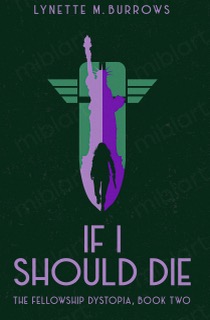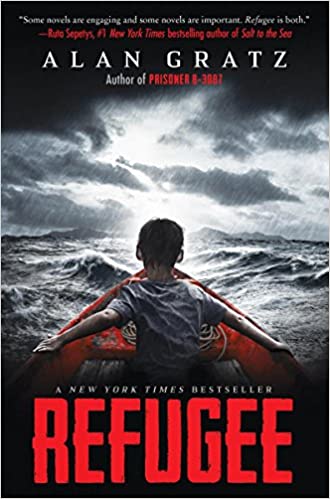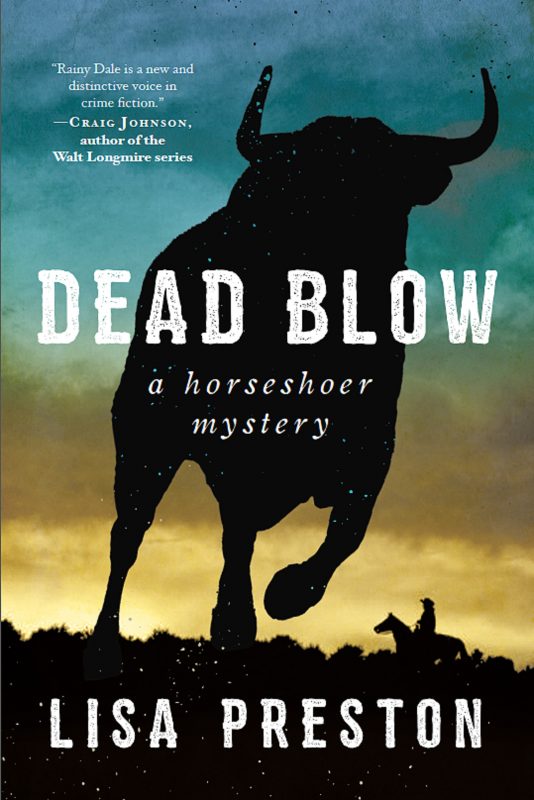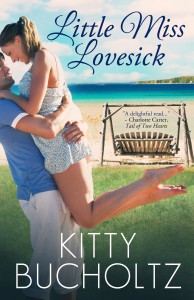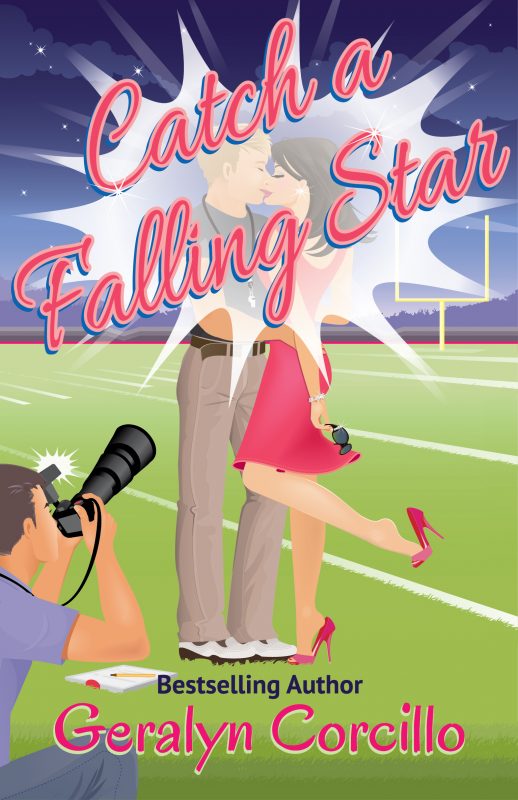Creating the Bond of Friendship in Your Novel by Connie Vines
November 13, 2016 by A Slice of Orange in category Archives tagged as Connie Vines, Friendship, OCC Blog, writing, www.novelsbyconnievines.comNearly every book I’ve read has a protagonist. And all of those protagonists were surrounded by several, if not a great many, friends. Within my own stories, my protagonists have quite a few friends. Among those friends, there are usually one or two, maybe three, friends that the protagonist is especially close to. One of my all time favorite series, Vampire Academy by Richelle Mead, follows best friends Lissa and Rose, who act like sisters most of the time. While reading, it’s clear that the two have known each other for a long while, see each other as their closest allies, and see their lives as them against the world. It’s obvious that they’re very close. The question is how does Mead accomplish this? How does any author establish these types of close friendships between characters without blatantly telling the reader?
If you think of your own close friendships, or your best friends, you’ll probably recognize five or more of the following in your relationship with these particular friends –
Understand without speaking.
When you’ve known someone a really long time, or have spent so much time together, you get to know the person so well that you pick up on their habits and quirks and body language. When they bite their lip, you know it’s not that they’re confused, but that the water works are about to begin and it’s time to get them out of there. You understand each other so well that no one needs to say anything.v You might not be able to read each others’ minds, but you understand each other well enough that neither of you needs to say anything. You just do.
Tease each other.
There’s artificial teasing, there’s bully teasing, there’s flirting teasing. But among friends, it’s the way we gently point out each others’ issues and faults without being cruel, it’s how we remind each other of good times, it’s how we connect and communicate. Between best friends, teasing is just another way we talk to each other. There’s no malice, jealousy, anger, or bitterness behind it. It’s often light, fun, laughable, and in good humor. It’s a way to make your friend laugh when they’re on the verge of tears. It’s the way we build each other up when our plans fall through. Teasing is always there, but it never, ever becomes a way of putting each other down.
Rely on each other.
Through good times and bad, friends can always be relied upon to be there and help each other. There are no excuses, there is no distance, there are no events that could prevent two best buds from helping each other out in times of emotional and physical need, and friends rely on each other for that. But friends also rely on each other for comfort, for support, for encouragement, and for all the things it seems the world wants to take away from us.
Seek each other’s advice.
Perhaps more than our parents, teachers, advisors, and mentors, we seek advice from our friends first. This might be a perfectly faulty action, but because friends understand each other and rely on each other, it’s natural that we seek advice from those we know, and who know us, best.
Feel comfortable around one another.
As with all of the above, friends are comfortable with each other enough to seek that advice, tease each other, and rely on one another. Even more than that, friends are comfortable with and around each other that they don’t care if they do something stupid, or say something idiotic. Because they’re comfortable with each other, these things happen and no one cares, because these silly things hardly define us. It’s the same with crying, or showing how truly angry we are, or how hopeless we feel. Friends know each other so well that they be vulnerable and sensitive, and the friend won’t misuse them.
Miss each other when gone.
Probably the greatest understatement of all these, but best friends will miss each other. They might be separated for only a day, maybe one has moved away. But miss each other they will, just the same. The effect this has on each other is anyone’s guess, as everyone reacts differently to separation. Some might become depressed, others might lash out, and some might just have that aching sense of loneliness in their gut that seems like it can’t ever be filled. There is most definitely a reaction, and missing each other is just the surface.
Have similar interests/hobbies/goals/pasts.
Whether they grew up together, or met at summer camp, or took the same art class, friends have similar interests. There’s something that initially drew them together, and in writing a book you can’t just put that aside. It will always be their foundation, and while the foundation can grow, there’s that one point, however small and insignificant in the present, that brought them together.
Grow together as individuals and as friends.
If any relationship is to last and get stronger, growth is a must. Trials, tragedy, celebration, joy; all these add to and change a person, their actions, and how they consider new situations, and this happens in a friendship as well. While going through similar occurrences, if friends cannot grow together, change. Make sure to show the friends, and their friendship, grow through the story.
Don’t judge.
It’s simple. Close friends, who understand, rely, advise, and help each other, just don’t judge. Regardless of what one does, or what the other thinks about a topic, they don’t judge. They accept that they’re individuals with different views and opinions on some things.
Don’t try to change each other.
As I said, friends accept each other. They don’t try to change one another, or mould each other into what their ideal would be, because that would be the farthest thing from acceptance. Friends understand, they don’t judge, and they don’t try to change their friends’ personalities, opinions, views, likes or dislikes, or their hopes and dreams. They accept everything about each other, and celebrate their differences.
Confide everything.
Friends naturally want to talk with each other and discuss the things that happen in their lives, but best friends, as I’m sure you know, will talk about everything. They confide everything in each other without fear of being rejected or judged.
Fights sometimes happen, but making amends occurs quickly.
No friendship is perfect, and because there are two people involved, disagreements are bound to occur. But when fights begin, whatever the topic, close friends will try to move past the argument and come to a conclusion, generally in the form of an agreement or better understanding of one another. They won’t linger on their differing opinions, and will try to make amends as soon as they can. This leads to stronger friendships, and is a way that the friendship can grow and develop.
Can’t imagine life without each other.
Perhaps more than anything else, best friends simply can’t imagine what life would be like if they weren’t together. It’s something they don’t want to think about, and is the last thing they’ll focus on when confronted with the real possibility of lifelong separation. They’ll come up with excuses, plans, arguments, anything that might be able to change the impending separation. They literally can’t picture their life being apart, because their personalities and dreams and emotional selves are so connected.
These are just a basic few things that can comprise a close friendship. Use some, use none, but make sure you really look at the characters you have and focus on showing that closeness where it’s supposed to exist. It offers greater development of both characters, adds to the realism of the plot, and helps with the overall story.
Good luck and good writing!
Connie
0 0 Read moreCalifornia Dreamin’
November 10, 2016 by A Slice of Orange in category Writing Conferences tagged as Orange County, Writing conferencesHave you registered yet for the 2017 California Dreamin’ Writers’ Conference?
When the conference committee held its first meeting in the summer of 2015, March of 2017 seemed a long way off. But time gets away from us, and the conference is only a little over four months from now!
From Friday’s Book Camp, presented by Debra Dixon, through our Sunday afternoon keynote speaker, Sarah MacLean, the conference offers something for writers at all stages of their careers.
Jann Audiss and I will be at the November 12th OCCRWA meeting and will be happy to answer your questions. Or, you can always submit questions via the California Dreamin’ website, https://caldreaminwriters.com/contact-us/ and a committee member will get back to you.
Hotel rooms are filling up quickly, and registration discounts for RWA and chapter members end January 15, 2017. If you’ve been thinking about registering, why not add the conference to your holiday wish list? You don’t want to miss it!
Alina K. Field
0 0 Read moreWhat Eccentric Writing Habits Have I Never Mentioned? By Connie Vines
October 13, 2016 by A Slice of Orange in category Archives tagged as #connie vines, #Rodeo Romance #the writing process, #writing, #writing voice, #ZombiesMost authors, of course, have personal eccentric writing practices. Fueled, no doubt by his or her personal muse. Agatha Christie munched on apples in the bathtub while pondering murder plots, Flannery O’Connor crunched vanilla wafers, and Vladimir Nabokov fueled his “prefatory glow†with molasses.
Then there was the color-coding of the muses: Alexandre Dumas, for decades, he penned all of his fiction on a particular shade of blue paper, his poetry on yellow, and his articles on pink; on one occasion, while traveling in Europe, he ran out of his precious blue paper and was forced to write on a cream-colored pad, which he was convinced made his fiction suffer. Charles Dickens was partial to blue ink, but not for superstitious reasons — because it dried faster than other colors, it allowed him to pen his fiction and letters without the drudgery of blotting. Virginia Woolf used different-colored inks in her pens — greens, blues, and purples. Purple was her favorite, reserved for letters (including her love letters to Vita Sackville-West, diary entries, and manuscript drafts. Lewis Carroll also preferred purple ink, but for much more pragmatic reasons: During his years teaching mathematics at Oxford, teachers were expected to use purple ink to correct students’ work — a habit that carried over to Carroll’s fiction.
So how do my little eccentric (or never before mentioned) writing practices measure up? Is my personal muse quirky, dull, or out of control?
Since my quirks are normal for me, I had to think about this for a bit.
• I always drink coffee that is part of my current ‘setting’. When my setting is New Orleans I mail order my coffee from my favorite spot.
Café du Monde. I have my cup and saucer, and a portable mug when I writing outdoors. I have a blue coffee pot and matching tin cup when I writing westerns (yes, the coffee is VERY strong and black). And of course, a Starbucks cup or a Disneyland mug when my novels take place in So.Cal.
• My music and my menu planning also is linked to my settings. All within the range of normal. Though I have more than my fair share of coffee mugs and cups.
• I listen to diction videos on YouTube so that I am not relying on my memory for the sound of a Cajun accent, Texan’s drawl, etc.
• I visit areas on Google Earth and Zillow. Even if I have lived or vacationed there, I may have forgotten an interesting ‘something’ I can insert into dialogue, or find a way to describe a scene.
• I talk to myself. Or not simple little sentences. I’m talking about a two- way conversation: “Do you think that might work?†“No. No one is that stupid!†“How about. . .†This is the time my husband walks by to find out who’s on the phone, or if I’m asking him a question. The dog even pokes her head in to see what’s going on. I’m thinking this is a bit outside of the ‘normal’ range.
• When I write I have to make certain my work space in in perfect order. I have colored folders/pens/notebooks that match and are exclusive to the story I’m working on at the moment.
• I never enroll in an online class when I’m writing—it’s guaranteed writers’ block. I never talk about my WIP because I mentally clock that as writing time and lose interest in the story before it’s completed.
• Whatever story I’m am working on is my favorite.
• I survive on 3 hours sleep when I am deep in a story. I know I drink coffee, but seem to run the story in my mind when I sleep too.
• I also pick up the quirks of my heroines. I have several friends who are in theater and said it’s a bit like ‘method acting’. Fortunately, I’m back to my state of normal a couple of weeks after typing THE END.
I think all of this part of a writer’s voice. It is what we, as readers, look for in a story. Hopefully, it is what my readers, enjoy about the novels, short-stories and novellas that I write too.
Happy Reading and Writing!
Connie
Visit My Author Page @ Amazon.com
0 0 Read moreOh Mercury Retrograde, Are You Here Again? by Connie Vines
September 13, 2016 by A Slice of Orange in category Archives tagged as #Rodeo Romance #the writing process, astrology, Connie Vines, Here Today Zombie Tomorrow, Mercury Retrograde, OCC BlogJanuary 5th to January 25th
April 28th to May 22nd
August 30th to September 22nd
December 19th to January 28th (2017)
Happy Writing,
Connie
Click HERE all my books are on FREE on the Kindle Count Down!!
It’s easy to criticize
August 24, 2016 by A Slice of Orange in category Columns tagged as Isabel Swift Judge something on its own merits/demerits: don’t blame the peacock for its tail or wish it were a chicken and provided eggs.
Isabel Swift
Affiliate Links
A Slice of Orange is an affiliate with some of the booksellers listed on this website, including Barnes & Nobel, Books A Million, iBooks, Kobo, and Smashwords. This means A Slice of Orange may earn a small advertising fee from sales made through the links used on this website. There are reminders of these affiliate links on the pages for individual books.
Search A Slice of Orange
Find a Column
Archives
Featured Books
DEAD BLOW
Rainy will have to dig deep and use all the tools in her box to both defend herself and the people she's just learning to love.
More info →CATCH A FALLING STAR
A TV star tells the paparazzi she's engaged to a high school football coach, but she doesn't tell him … because she barely even knows him.
More info →Newsletter
Contributing Authors
Search A Slice of Orange
Find a Column
Archives
Authors in the Bookstore
- A. E. Decker
- A. J. Scudiere
- A.J. Sidransky
- Abby Collette
- Alanna Lucus
- Albert Marrin
- Alice Duncan
- Alina K. Field
- Alison Green Myers
- Andi Lawrencovna
- Andrew C Raiford
- Angela Pryce
- Aviva Vaughn
- Barbara Ankrum
- Bethlehem Writers Group, LLC
- Carol L. Wright
- Celeste Barclay
- Christina Alexandra
- Christopher D. Ochs
- Claire Davon
- Claire Naden
- Courtnee Turner Hoyle
- Courtney Annicchiarico
- D. Lieber
- Daniel V. Meier Jr.
- Debra Dixon
- Debra H. Goldstein
- Debra Holland
- Dee Ann Palmer
- Denise M. Colby
- Diane Benefiel
- Diane Sismour
- Dianna Sinovic
- DT Krippene
- E.B. Dawson
- Emilie Dallaire
- Emily Brightwell
- Emily PW Murphy
- Fae Rowen
- Faith L. Justice
- Frances Amati
- Geralyn Corcillo
- Glynnis Campbell
- Greg Jolley
- H. O. Charles
- Jaclyn Roché
- Jacqueline Diamond
- Janet Lynn and Will Zeilinger
- Jaya Mehta
- Jeff Baird
- Jenna Barwin
- Jenne Kern
- Jennifer D. Bokal
- Jennifer Lyon
- Jerome W. McFadden
- Jill Piscitello
- Jina Bacarr
- Jo A. Hiestand
- Jodi Bogert
- Jolina Petersheim
- Jonathan Maberry
- Joy Allyson
- Judy Duarte
- Justin Murphy
- Justine Davis
- Kat Martin
- Kidd Wadsworth
- Kitty Bucholtz
- Kristy Tate
- Larry Deibert
- Larry Hamilton
- Laura Drake
- Laurie Stevens
- Leslie Knowles
- Li-Ying Lundquist
- Linda Carroll-Bradd
- Linda Lappin
- Linda McLaughlin
- Linda O. Johnston
- Lisa Preston
- Lolo Paige
- Loran Holt
- Lynette M. Burrows
- Lyssa Kay Adams
- Madeline Ash
- Margarita Engle
- Marguerite Quantaine
- Marianne H. Donley
- Mary Castillo
- Maureen Klovers
- Megan Haskell
- Melanie Waterbury
- Melisa Rivero
- Melissa Chambers
- Melodie Winawer
- Meriam Wilhelm
- Mikel J. Wilson
- Mindy Neff
- Monica McCabe
- Nancy Brashear
- Neetu Malik
- Nikki Prince
- Once Upon Anthologies
- Paula Gail Benson
- Penny Reid
- Peter Barbour
- Priscilla Oliveras
- R. H. Kohno
- Rachel Hailey
- Ralph Hieb
- Ramcy Diek
- Ransom Stephens
- Rebecca Forster
- Renae Wrich
- Roxy Matthews
- Ryder Hunte Clancy
- Sally Paradysz
- Sheila Colón-Bagley
- Simone de Muñoz
- Sophie Barnes
- Susan Kaye Quinn
- Susan Lynn Meyer
- Susan Squires
- T. D. Fox
- Tara C. Allred
- Tara Lain
- Tari Lynn Jewett
- Terri Osburn
- Tracy Reed
- Vera Jane Cook
- Vicki Crum
- Writing Something Romantic
Affiliate Links
A Slice of Orange is an affiliate with some of the booksellers listed on this website, including Barnes & Nobel, Books A Million, iBooks, Kobo, and Smashwords. This means A Slice of Orange may earn a small advertising fee from sales made through the links used on this website. There are reminders of these affiliate links on the pages for individual books.






